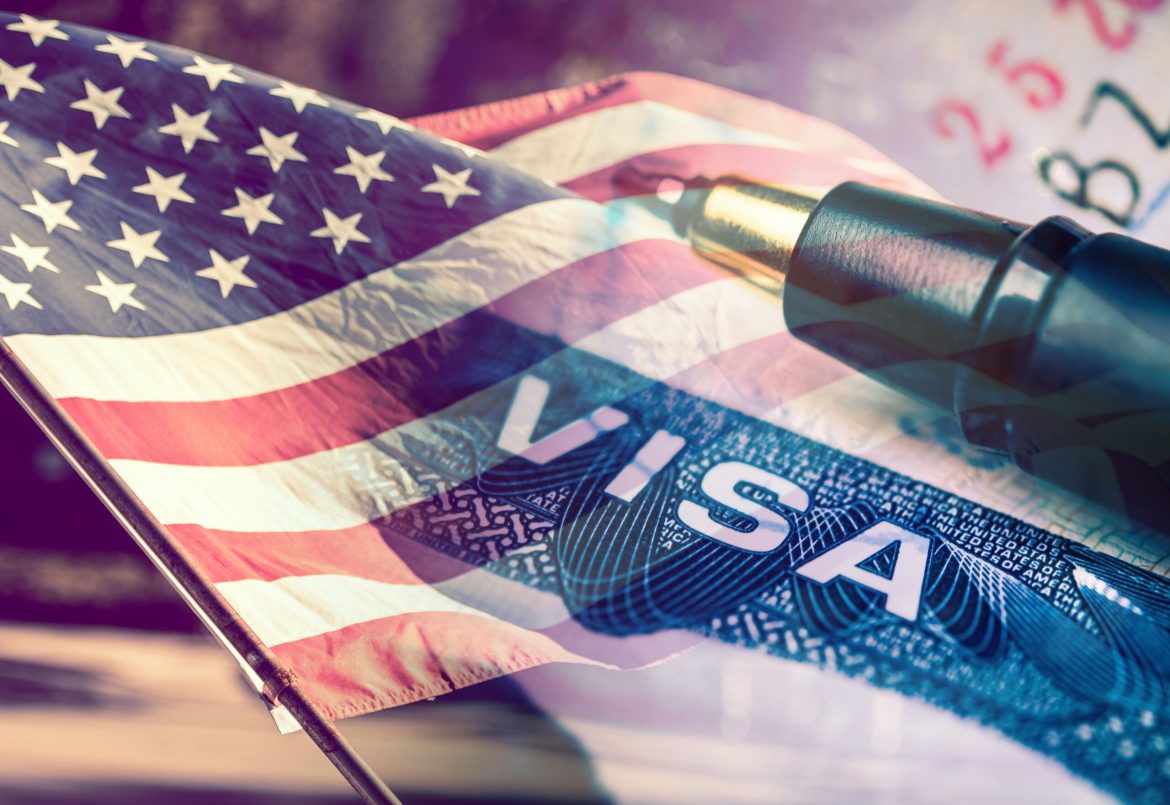The United States government has introduced a new visa policy for non-immigrant visitors from Nigeria, Ethiopia, and Cameroon, limiting them to a single-entry visa that is valid for only three months. This decision marks a shift from the previous arrangement, where travellers could get two-year multiple-entry visas under the B1 and B2 categories.
According to a statement released by the U.S. Embassy in Addis Ababa, the policy change is part of what is called the “reciprocity non-immigrant visa realignment policy.” This move affects thousands of African travellers and has stirred concerns among stakeholders, especially in Nigeria where many citizens frequently visit the U.S. for business, tourism, and family purposes.
The embassy explained that this new rule will only affect visas issued from July 8, 2025, onward. Those who already hold valid visas issued before this date will not be affected. They can continue to use their visas as usual until the expiry date.
Before now, Nigerian and Ethiopian applicants seeking B1 and B2 visas – which are used for business and tourism respectively – received multiple-entry visas valid for up to two years. With the new policy, once a traveller leaves the U.S., even if the three-month visa has not expired, they cannot return using the same visa. They must apply for a new one.
This change is part of a broader effort by the U.S. Department of State to match the visa policies of other countries with what U.S. citizens experience when applying to those countries. In other words, if a Nigerian gives U.S. citizens short visas, then America will do the same to Nigerians. This is what is referred to as “visa reciprocity.”
However, observers believe the new visa policy is also linked to immigration and national security concerns. The Trump administration, known for its tough stance on immigration, is said to have expanded a list of countries facing travel restrictions. Reports indicate that as many as 36 more countries may be affected soon, with 25 of them from Africa. These include Egypt, Djibouti, and several other nations where the U.S. believes there are immigration or security issues.
Back home in Nigeria, reactions have been mixed. Some citizens feel the U.S. should reconsider its decision as it affects business owners, students, families, and tourists who regularly travel between both countries. Others argue that the Nigerian government must take steps to improve its international standing and also ensure its own visa policies are fair and friendly to foreigners.
Under the current structure, most Nigerian travellers to the United States fall under the B1 and B2 visa categories. These allow for short stays for purposes like attending conferences, medical treatment, family visits, or vacation. Businessmen who attend meetings and trade fairs in America also use these visas.
Now, with the policy limiting both the duration and the number of entries, travellers will have to reapply and pay visa fees more frequently. This could increase the financial burden and make planning trips more difficult for genuine visitors.
Diplomatic analysts say that this is not the first time the U.S. has implemented strict visa rules for Nigerian nationals. In 2020, during the Trump administration, Nigeria was added to a list of countries facing immigrant visa restrictions over national security concerns. That ban was later lifted in 2021 by President Joe Biden.
Some foreign policy experts believe this latest move could affect diplomatic relations between the U.S. and the affected African countries if not properly handled. They advise that both sides should open diplomatic channels to resolve the situation.
Meanwhile, the U.S. government has assured that the new visa policy is not a ban. Citizens of Nigeria, Ethiopia, and Cameroon can still apply for visas. The difference is that the visa is now valid for only three months and allows just one entry into the country.
As the policy takes effect, many Nigerians are now waiting to see if the Nigerian government will respond with its own review of U.S. visa issuance in return, or if talks will be held to find a middle ground.
